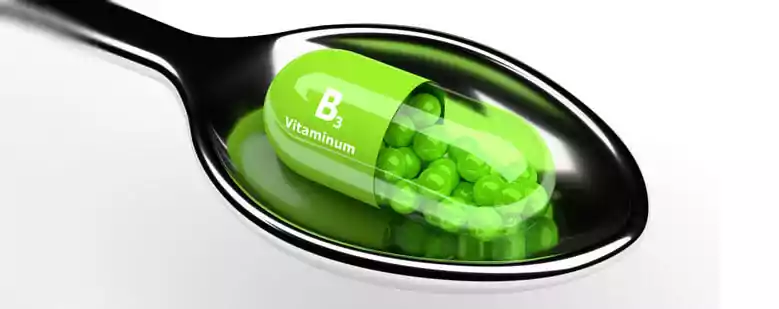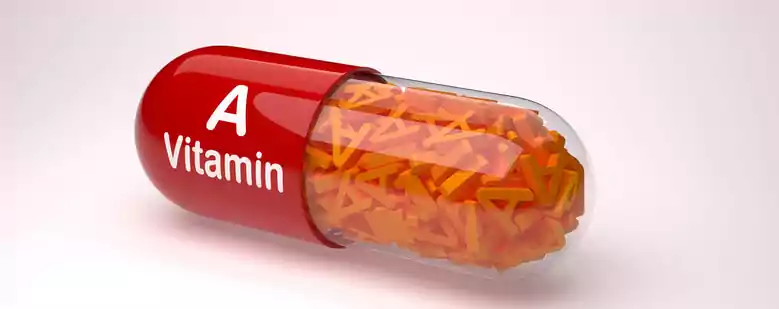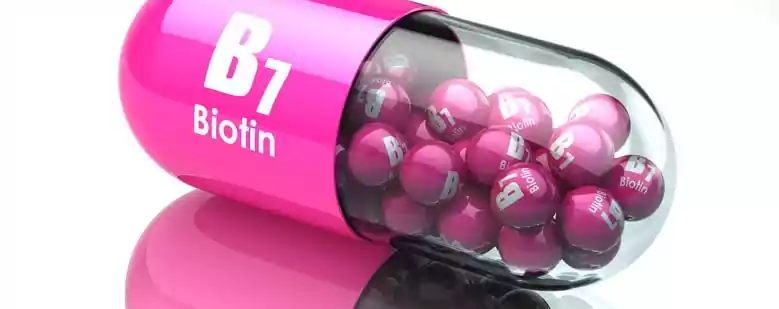
Supplements
Best Vitamins For Diabetics
Mar 15, 2017Eating a varied diet rich in natural sources of vitamins is a good idea for diabetics. Nutritional support is critical for diabetics because diabetes tends to drain nutrients. When levels of glucose are high in the blood, the body tries to ‘wash’ the excess sugar out. This is why diabetics need to use the washroom frequently. Unfortunately, diabetics also lose nutrients via their urine. Research studies show that diabetics are repeatedly found to be deficient in important water-soluble vitamins and minerals. What’s more, the loss of these vitamins worsens the body’s ability to manage blood sugar, creating a vicious cycle. Combining a healthy diabetes diet plan and a daily exercise routine with the best vitamin supplements for diabetics goes a long way in achieving stable blood sugar levels.
What Vitamins Are Diabetics Deficient In?
The term vitamin is short for “Vital Amino Acid”. This means that these are vital for the proper functioning of hundreds of chemical processes in the body which the body cannot manage by itself. Proper blood sugar control is one such function for which vitamins are critical. There are 13 essential vitamins that the human body requires and they must be obtained from an external source — through food and/or supplements.
Diabetics need two kinds of vitamins:
Water Soluble – Vitamins B1, B2, B3, B6, B12, C, Biotin, and Folate are water-soluble and cannot be stored in the body for longer periods of time. Diabetics are often deficient in these vitamins since they pass greater amounts of urine daily. As their body tries to get rid of extra sugar, diabetics lose more water-soluble vitamins than most others. That’s why diabetics need to to get these vitamins daily in doses larger than what normal people need. Luckily, you can get all of these in a single, high potency multivitamin, which you can take twice a day, and thus make up for most of the vitamins lost.
Fat Soluble – Vitamins A, D, E, and K are fat-soluble, which is yet another reason why we highly recommend a Low Carb-High Fat (LCHF) diet for diabetics. If you eat a diet that is high in good fats, the fat soluble vitamins can be stored in the body for longer periods of time.
What Do The 13 Vitamins do?
Let’s take a look at all 13 essential vitamins and then figure out the best vitamins for diabetes type 2. Remember: diabetes is not just about blood sugar control., Rather, it’s about reducing inflammation in the body. So these vitamins help foster good health in many ways.
We’re also giving you the best food sources for these vitamins. Recommended Daily Allowance or RDA for each as per government guidelines is included. Please note that doctors of nutritional medicine often recommend higher doses, based on latest research and their clinical experience. Government guidelines take time to be updated . With fat soluble vitamins, it is advisable to consult your doctor.
1. Vitamin A (Retinol and Beta Carotene)
With strong antioxidant properties, Vitamin A helps improve immune health by facilitating healthy mucus membranes that can fight diseases better. It’s crucial in building strong teeth and bones. It also helps delay Alzheimer’s disease, arthritis, heart diseases and age-related muscular degeneration problems. For diabetics, the carotenoids in Vitamin A can help prevent diabetic retinopathy (a condition which leads to loss of eyesight and fuzzy vision).
Good food sources of Vitamin A include dairy products, eggs, fish liver oil, beef, kidney, chicken, leafy vegetables, carrots, sweet potatoes, winter squash, apricots and cantaloupe.
RDA: 700-900mcg (2300-3000 IU)
What doctors recommend: 10,000IU
2. Vitamin B1 (Thiamine)
The job of Vitamin B1 is to help convert food into energy. It’s essential for healthy skin, hair, brain, heart, and for normal nerve functioning. It may also help prevent indigestion, heart disease and kidney stones. Vitamin B1 is critical for nerve health in diabetics specifically.. Thiamine can offer protection from the nerve damage that diabetics face due to excess sugar in their blood.
Good food sources of Vitamin B1 include pork chops, ham, liver, dried beans, nuts and seeds.
RDA: 1.2mg
What doctors recommend: 50mg
3. Vitamin B2 (Riboflavin)

Soya contains Vitamin B2 which improves the body’s metabolic activity, boosts the immune system, and promotes the health of the nervous system
Vitamin B2 improves the body’s metabolic activity, boosts the immune system and promotes the health of the nervous system.
Good food sources of Vitamin B2 include dairy products, soybeans, whole grains, meat and poultry, liver, eggs and mushrooms.
RDA: 1.3mg
What doctors recommend: 50mg
4. Vitamin B3 (Niacin, nicotinic acid)

Vitamin B3 helps for fatigue, indigestion, high blood pressure and blood cholesterol, diabetes, skin disorders, and migraines.
This vitamin is important for the nervous system, digestive system, skin health, hair and brain. Vitamin B3 also helps convert food into a readily available source of energy. It’s especially helpful for those who suffer from fatigue, indigestion, high blood pressure and blood cholesterol, diabetes, skin disorders and migraines.
Good food sources of Vitamin B3 include meat, mushrooms, poultry, whole grains, peanut butter and potatoes.
RDA: 16mg
What doctors recommend: 130mg
5. Vitamin B5 (pantothenic acid)

Poultry products contain Vitamin B 5 which help with neurological problems and a burning sensation in the feet
Vitamin B5 aids in converting the food we eat, into energy that fuels bodily functions. It also helps make lipids and hemoglobin. Deficiency can cause neurological problems and a burning sensation in the feet (both of which are also common in diabetics).
Good food sources of Vitamin B5 include whole grains, mushrooms, broccoli, tomatoes, avocadoand poultry.
RDA: 5mg
What doctors recommend: 150mg
6. Vitamin B6 (Pyridoxine)
The job of Vitamin B6 is to help the body use up proteins and glycogen. It also helps form hemoglobin which carries blood in the body. Its deficiency can cause or worsen seizures in infants. One of the best diabetic vitamin supplements, Vitamin B6 supports nerve health, which is critical in addressing conditions such as diabetic neuropathy.
Good food sources of Vitamin B6 are meat, potatoes, poultry, soybeans, bananas, nuts, bran, oats, lentils, chickpeas and sunflower seeds.
RDA: 1.7mg
What doctors recommend: 110mg
7. Vitamin B7 (Biotin)
Vitamin B7 aids in glucose synthesis and helps break down fatty acids. It allows the body to use proteins, fats and carbohydrates from the food consumed.
Good food sources of Vitamin B7 include whole grains, non-fat milk and yogurt, sweet potatoes, peanuts, almonds, eggs, liver, poultry meat, organic meats and fortified soy milk.
RDA: 30mcg
What doctors recommend: 300mcg
8. Vitamin B12 (Methylcobalamin)

Dairy products contain vitamin B12 which is the best vitamin for diabetics who suffer from neuropathy
Vitamin B12 boosts the central nervous system and helps improve body metabolism while also synthesizing red blood cells. It’s one of the best vitamins for diabetics who suffer from neuropathy and a compromised immune system.
Good food sources of Vitamin B12 are animal food sources such as meat, poultry, seafood, eggs, milk and other dairy products.
RDA: 2.4mcg
What doctors recommend: 100mcg
9. Folate
Folate (not to be confused with Folic Acid) is vital for new cell creation, which is why it’s recommended during pregnancy. It may also protect against certain types of cancers.
Good food sources of Folate are asparagus, spinach, okra, broccoli, legumes like chickpeas and black-eyed peas, tomato juice and orange juice.
RDA: 400mcg
What doctors recommend: 400mcg
10. Vitamin C (Ascorbic Acid)
Vitamin C is an antioxidant that boosts the immune system, maintains healthy tissues and promotes the body’s ability to absorb iron. It also helps lower levels of sorbitol – the sugar that can collect in and damage cells in the eyes, kidneys and nerves. All this makes it a good vitamin for diabetes.
Good food sources of Vitamin C include citrus fruits, broccoli, potatoes, bell peppers, spinach, tomatoes, Brussel sprouts and strawberries.
RDA: 90mg
What doctors recommend: 1,000mg
11. Vitamin D
Vitamin D is essential for good bone health as it plays a crucial role in allowing the body to absorb calcium and phosphorus, making bones and teeth stronger and healthier. It boosts production of antimicrobial peptides called ‘cathelicidins’, which destroy viruses, bacteria and other germs. Since diabetics are highly prone to infections due to diabetic ulcers and gum diseases, it is important to make sure the body has optimal levels of this fat-soluble vitamin.
Good food sources of Vitamin D include milk, fish, eggs, organ meats fish liver oils, and rice beverages.
RDA: 800IU
What doctors recommend: 1,000IU
12. Vitamin E
The body’s premium fat-soluble antioxidant, Vitamin E, improves glucose control and protects blood vessels and nerves from free radical damage which is accelerated by diabetes. This makes it one of the best vitamins for diabetics. Studies have shown that high doses of supplemental vitamin E may even reverse damage to nerves caused by diabetes and protect against diabetic cataracts and atherosclerosis.
Good food sources of Vitamin E include vegetable oils, leafy green vegetables, avocados, some nuts, sunflower seeds, peanut butter and wheat germ.
RDA: 33IU
What doctors recommend: 300IU
13. Vitamin K
Vitamin K is essential for activating proteins as well as calcium which aids inblood clotting and can also protect against fractures.
Good food sources of Vitamin K include liver, broccoli, spinach, sprouts, kale, eggs, collard and other leafy green vegetables.
RDA: 90-120mcg
What doctors recommend: 120mcg
Best Vitamin Supplements For Diabetics: What You Should Have for Sure!
Supplementing your body with the best vitamins for diabetics helps increase intake of nutrients that support your body’s ability to use insulin, thus keeping your blood sugar at healthy levels.
Here’s what the scientific research supports, the diabetic supplements that work.
1. Multivitamin:
Taking a high-quality multivitamin and mineral supplement everyday dramatically reduces infections and sick days in diabetics.
According to a study published in American Journal of Epidemiology in 2001, men who took multivitamins had reduced risk of diabetes. Women too benefited, though the gains were marginally lower.
If you prefer to take a high potency multivitamin, you may not need to take individual vitamins separately. However, if you have specific problems that are better addressed by such vitamins or if you have deficiency of a vitamin like vitamin D3, you may want to dose these individually.
2. Vitamin B3:
Researchers from University of Iowa have discovered that Niacin, or Vitamin B3, helped lower blood sugar, reduce fatty liver and also prevent neuropathy in mice with diabetes type 2. The lead authors of the study conducted in May 2016 proved that Niacin protected the pre-diabetic and diabetic mice against nerve damage and helped maintain their normal sensitivity to heat. These findings provide a scientific rationale for conducting human trials to test the effects of Vitamin B3 on metabolic disorders including prediabetes and T2D, as well as obesity, fatty liver disease and neuropathies.
3. Vitamin B6 and B12
A Randomized Controlled Trial (RCT) was conducted at 5 university medical centers in Canada between May 2001 and July 2007. 238 diabetic participants who received B-vitamin therapy had reduced kidney damage caused by diabetes. Their arterial health improved too. Diabetics with kidney issues are often found to have too much of the harmful chemical homocystiene in their blood. B-vitamin therapy – with folic acid, vitamin B6, and vitamin B12 have been shown to lower the blood levels of homocysteine.
4. Vitamin C
According to a report published in The American Journal of Clinical Nutrition, diabetes mellitus may lower serum vitamin C concentrations in the blood. Data obtained from the third National Health and Nutrition Examination Survey (1988–1994) showed that mean blood Vitamin C concentrations were significantly lower in persons with newly diagnosed diabetes than in those without diabetes. Another NCBI study found that Vitamin C improves widening of arteries to allow suffient blood flow in patients with non-insulin-dependent diabetes mellitus.
5. Vitamin D
Published in Endocrine Society, a report concluded that insufficiency of Vitamin D and calcium may negatively influence blood sugar control. It was also found that combined supplementation of both nutrients may be beneficial to control blood sugar. Another Spanish study ascertained that Vitamin D deficiency has been shown to alter insulin synthesis and secretion. Insulin is responsible for escorting sugar into the cells and removing it from the blood.
6. Vitamin E
An Italian study published in American Diabetes Association journal Diabetes Care showed that Vitamin E administration could reduce protein glycosylation in diabetic subjects.
When to Have Vitamins?
The best time to have your vitamins would be with your food. This allows for the nutrients to be absorbed far more easily into the body. Ideally, your vitamins should be split into even doses across the day – morning and night.
Beyond Vitamins: What Else Can Help Manage Diabetics?
Besides the above mentioned best vitamins for Type 2 diabetics, it’s important to note that other supplements like Magnesium, Chromium and Omega 3 fatty acids are also extremely beneficial for diabetes.
So go ahead, and give your body the natural advantage in its fight against diabetes. Give it the vital amino acids it needs, so that it can do its job.
References:
1. Supplement your Prescription” by Hyla Cass, M.D.
2. My Supplement Pyramid by Micheal Smith, M.D.
3. Life Extension Foundation
4. Nutritional Medicine, by Alan Gaby, M.D.













